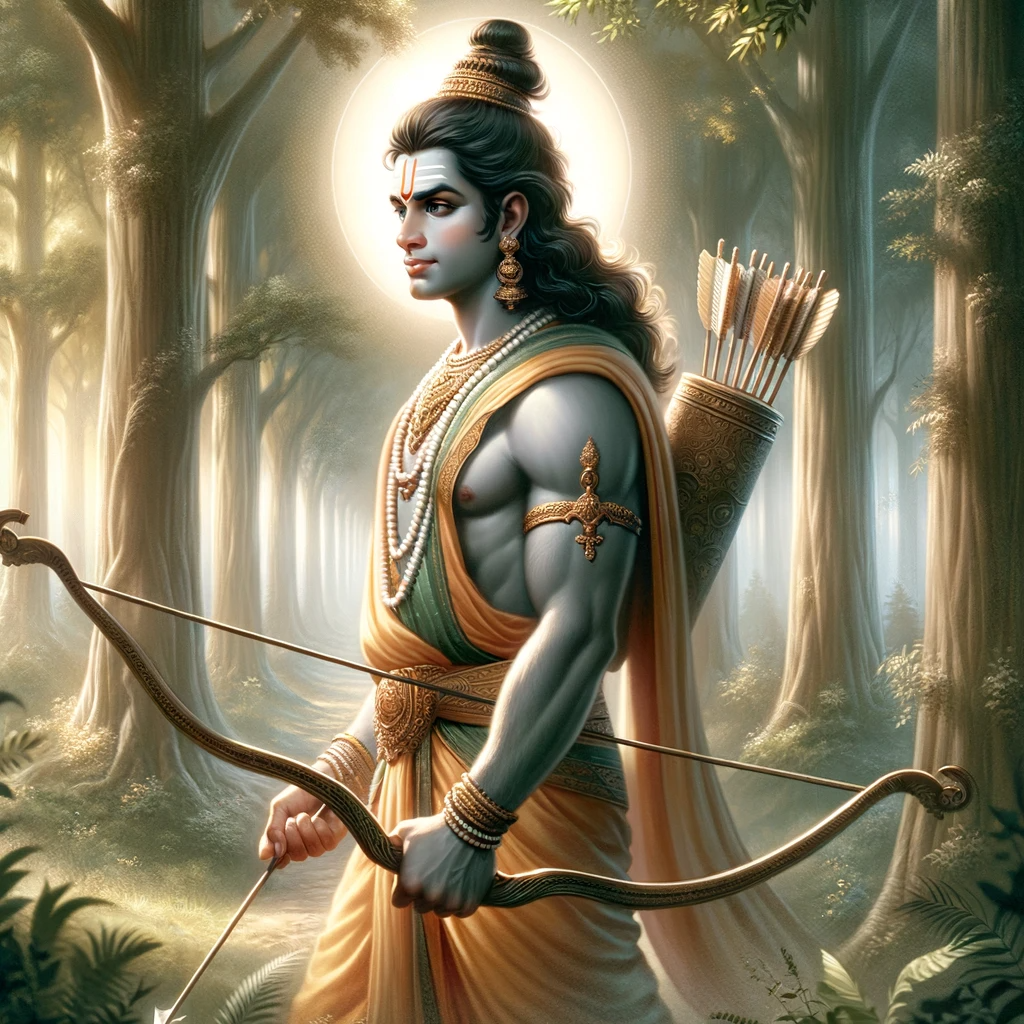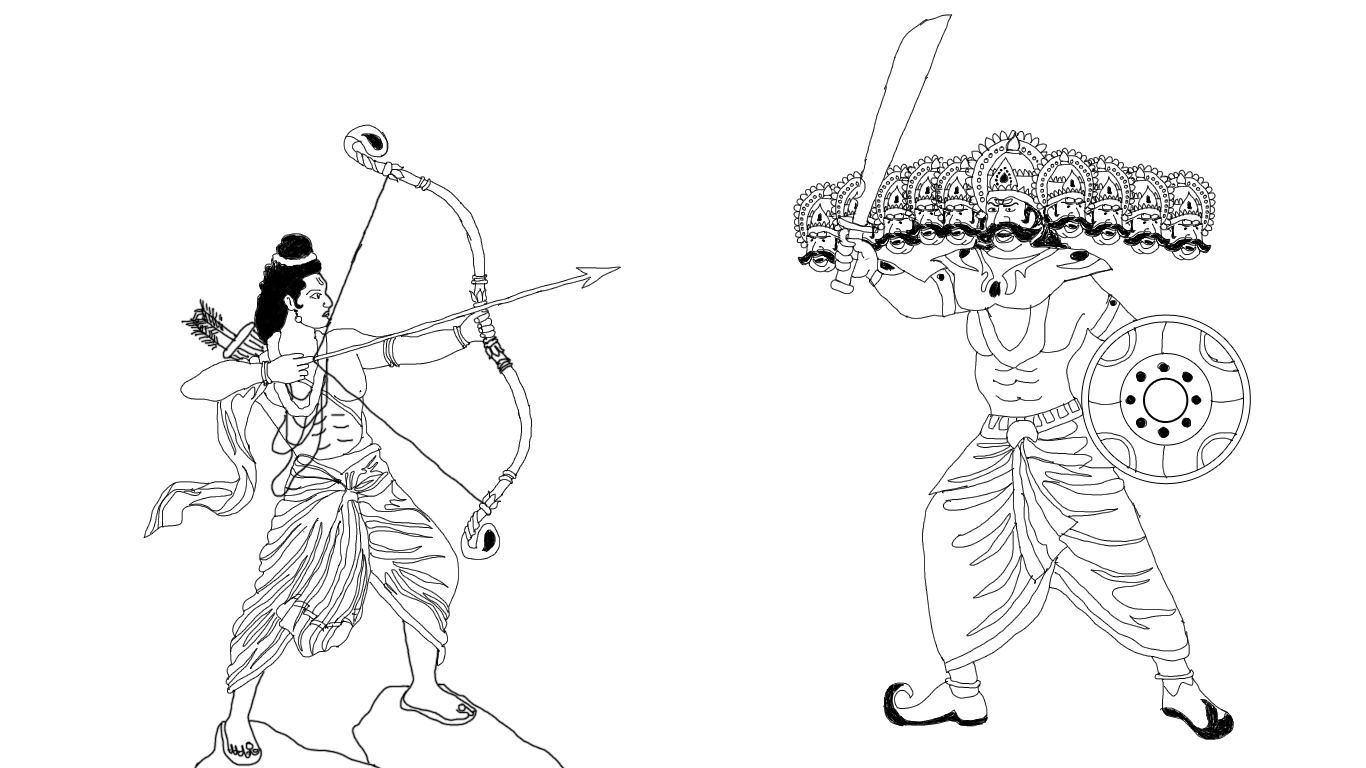The Enduring Legacy of Lord Rama: Symbolism and Life Lessons

Rama is probably one of the most famous avatars of Lord Vishnu and his popularity as a central deity in Hinduism comes from epics like Ramayana by Valmiki and Ramacharitmanas by Tulsi Das.
Often he is called Maryada Purushottam Ramchandra. The term Maryada Purushottam means the one supreme among men, one who is righteous and moral. Ramchandra is the seventh avatar of Lord Vishnu and his legends are told with great pleasure and devotion among Hindus.
Born to King Dasarath of Ayodhya and his queen consort Kausalya, he was the eldest of the four brothers. His younger siblings respectively were his brothers Lakshmana, Shatrughna, and Bharat. Rama, married to Sita, is also often called “Siyavar” - the one who is the husband of Siya (Sita).
Born as a prince in the family of mighty Dasharath, Rama was the embodiment of all the greatest virtues of a human, husband, and a great King. Despite having suffered a lot, he never forsaken the path of truth, justice, and righteousness, stayed brave and patient in face of insurmountable problems to claim the title of Maryada Purushottam - the best among men.
Rama was known for his unbending devotion to his teachers and parents. As a pupil, he received education from Rishi Vashishtha and helped sage Vishwamitra by defeating the demons who interrupted his yajnas.
Rishi Vishwamitra acted as a preceptor to Ram and Lakshmana and guided them in killing various demons, most famously the infamous demoness Taarka. After receiving several divine weapons and many adventures, Rishi Vishwamitra led the brothers to Mithila where Rama first met and married Sita after breaking the divine bow of Shiva.
As a pupil, Ram and Lakshmana set great examples for the world, reminding them of the importance of worshipping and respecting one’s guru. But his obedience isn’t limited to his teachers and mentors.
When the time came, Rama displayed deep respect, a sense of sacrifice, and love for his parents. Even though his stepmother Kaikeyi, falling prey to the fear and words of her servant Manthara, asked her husband Rama to be sent to live in forests for 14 years, he respected this decision without resentment or anger.
Taking his parents’ blessings and easily forsaking his rightful place at the throne of Ayodhya, he left for Vanwaas, joined by his dutiful companions - wife Sita and younger brother Lakshmana.
With love and purity of his heart, Lord Rama convinced his younger brother Bharata to forgive his mother Kaikeyi for her fears and serve their parents and kingdom while he was away.

Rama loved his wife more than anything else and did anything and everything to please her and keep her happy. Despite the tradition of men taking multiple wives in his age and time, he took the eka-patni vrat (one-wife oath) and swore his loyalty and love to only and only goddess Sita.
When he was given the order to stay in forests for 14 years, he didn’t want his wife or his brother to suffer the problems of living in a forest. With all his love and well wishes, he advised her to stay amid the comforts of the palace. It was due to her love for her husband that Sita decided to join him during his tough time.
Even when they were living in the forest, Rama took every wish of his wife as an order - the devotion that prompted him to go after the golden deer in the forest. It was during this time that Sita, alone in the hut, was abducted by the evil demon king of Lanka, Ravana.
After his wife’s abduction, he roamed around the forest, dejected and grief-stricken, for days, asking trees, flowers, birds, and animals about the whereabouts of his wife. When he came to know about Sita’s abduction, he wasted no time and immediately took help from Hanuman, Sugreeva, and his vaanar-sena to attack Lanka and get his wife back.
After they had defeated Ravana and returned to Ayodhya, Sita had to be forsaken by Rama due to his Rajdharma - his duties as a King. Despite knowing of her innocence as a wife, Ram had to give up Sita, a decision that pained him to his core.
Following his duties as a king, he left Sita - following his duties as a husband, he remained loyal to her, never remarried, slept on the floor knowing that’s where Sita would be sleeping, ate only fruits and plain food knowing that’s what she would be eating in forests. Despite living in a palace, he lived the life of a hermit, exactly as he imagined his wife must be living.

Rama gave great lessons through his actions, decisions, will, and desire to stay righteous and just to all around him.
Until this day, he is considered to be the highest and kindest example for mankind to follow. Here are some great lessons we can learn from him:
There is so much our world can learn from the life of Ram, Sita and Lakshmana - qualities we definitely need to cultivate among our children, students and upcoming generations.
Get weekly updates on the newest articles, quotes and newsletters right in your mailbox. Subscribe now
